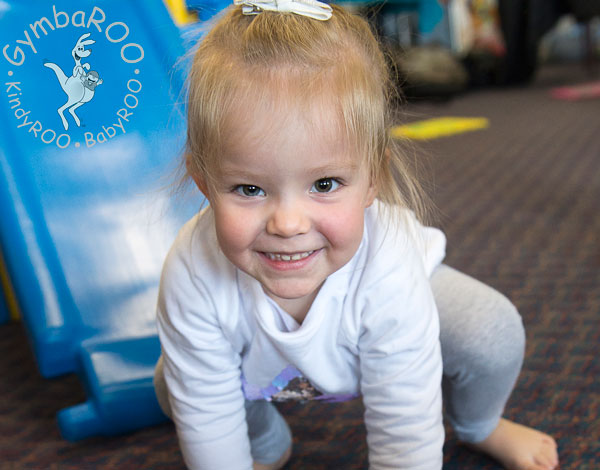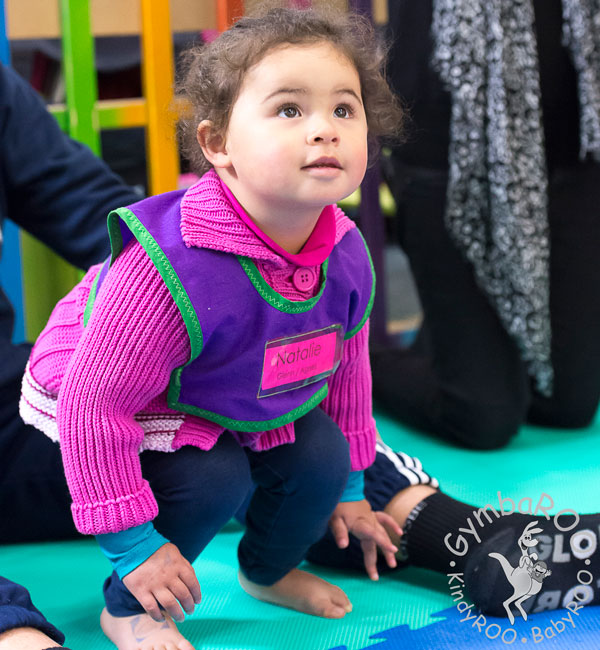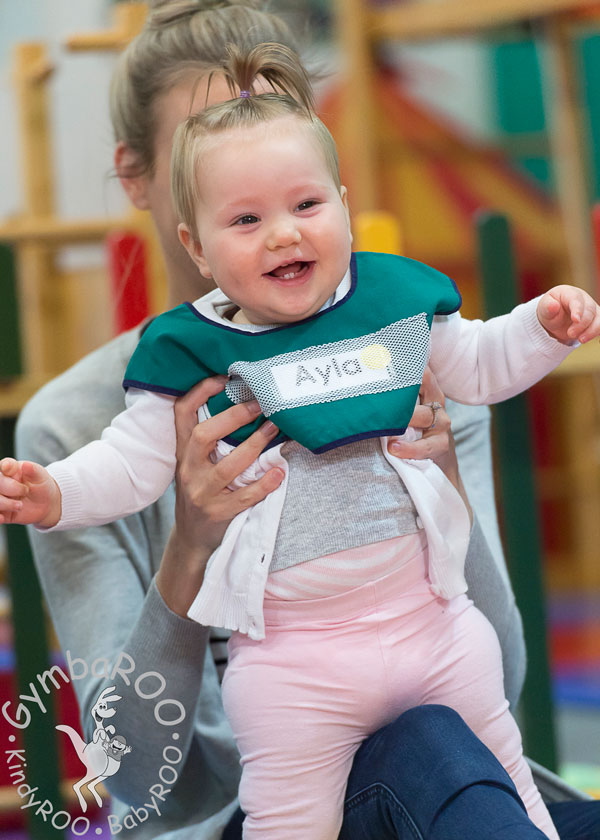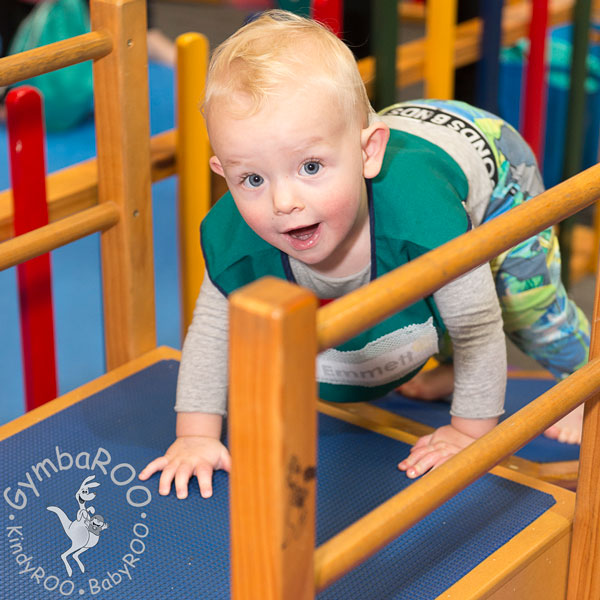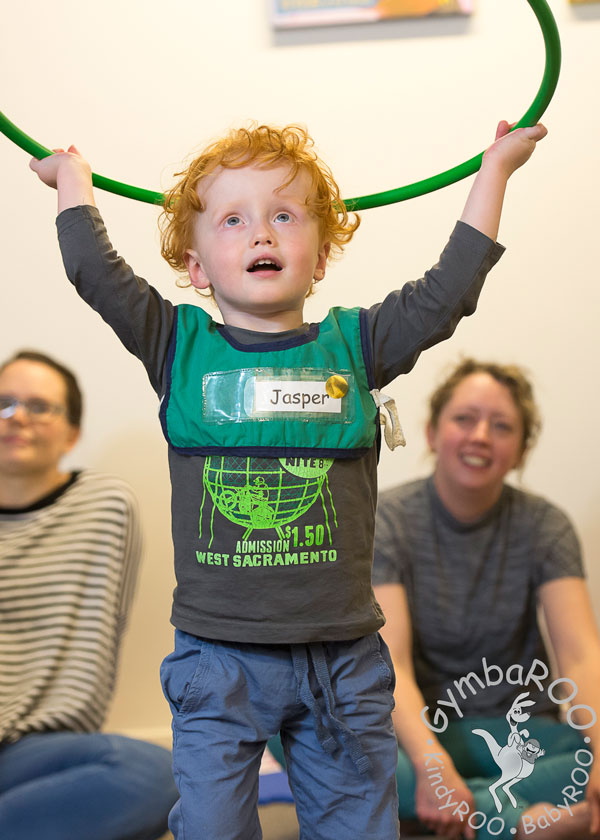Join the thousands of parents already raising smarter, happier babies with our online baby classes: The Active Babies Smart Kids series. Click here.
GymbaROO-KindyROO kids are excelling academically, emotionally, in leadership roles and on the sporting field. Find us at: GymbaROO-KindyROO
Dr Jane Williams and Bindy Cummings
“Close your book, put your pencil down, walk to the front of the room and quietly form a double line near the door,” requests the teacher.
It is amazing how many children enter school unable to respond to such a request because they do not understand concept words such as; close, down, front, quietly, double and near. These children become ‘lost’ and will struggle in situations where instructions include concept words. They may be considered ‘naughty’ or ‘distractible’ whereas, in fact, they are simply not capable of following the instructions as they do not understand the meaning of the words. (See below for the list of concept words that children should know before school entry).
Our language is full of concept words. The best way to help children understand the meanings is through movement, that is, they learn to understand concept words by doing, and doing repetitively! This is why we encourage parents to use concept words right from birth, and why our GymbaROO classes are full of opportunities for children to hear and do activities that reinforce the meaning of these words.
How to help your child learn the meaning of concept words
Babies
You will find many ways of using concept words while talking to your baby even before mobility: “Now I am rolling you over,” or “You’re flying through the air like an airplane.” Nursery rhymes, where you move your baby as you sing, also indicate to your infant what concepts words feel like, for example; Incy Wincy Spider, where Incy climbs up and the rain comes down.
Once babies begin crawling and creeping, opportunities for the use of concept words abound; under furniture, over cushions, through the door, on top of, or underneath the table/chair, outside/inside, behind/in front, up/down, in/out and so on. You can deliberately make an obstacle course with the furniture, cushions and toys. This will not only help concept understanding, body awareness and muscle tone, but also thinking skills. Let your infant figure out the best way to overcome the obstacles.
When going out, talk about getting into the car or pram, and later, out of it. If going up or down a hill – say so.
At bath time, the soap may be under the water, a toy may be floating on top of the water. Let them feel hard, soft, rough and smooth objects.
Toddlers
Once your infant can respond to language and follow your commands, the opportunities increase to help them feel what it is like to be; up/down, in/out, under/on top of, as they learn to do these things themselves.
Action rhymes like ‘Ring a Ring a Rosie’, ‘Hickory, Dickory, Dock’, ‘Jack and Jill went up the hill’ and handplays like ‘Round and round the garden’ all contain concept words that encourage children to match movements to the word.
Balls are a lot of fun at this age and help the child learn the concept words; in front of, towards, away, high, low, around, fast, slow and so on.
By the time our infants are walking, there are many opportunities to use concept words both at home and at play on equipment; “Can you go – under, over, up, down, through, around, in, out, between, inside, outside – the equipment?”
Twos and Threes
Now they will enjoy finding something hidden; under, beneath, behind or in front of something else.
Older children can play small equipment games – “Roll the ball under the rope.” “Throw the beanbag over the rope.” “Throw the ball towards Daddy.” “Hold the hoop over your head,” etc.
After and before are words commonly used, but difficult for little children, as they bring in the concept of time. Introduce them first in movement context – “Can you clap after me?” “Can you stamp your feet after me?” “Let’s go after the ball.” “Before you do it, watch and then copy me.” “Wash your hands before lunch.”
‘Simon Says’ games with the three-year-old gives lots of scope for the introduction of concepts; “Lie on your fronts/backs.” “Stand up tall,” etc.
Fours
Structured activities which require four-year-olds to stand in line can be used to introduce the concepts of in front of, behind, at the end, at the beginning, in the middle, away from, between, and through, etc. Until your child has the ability to do things in order or sequence, words like first and last are difficult to comprehend.
Play with clay, paint and construction toys give opportunities for showing the differences in size, shape and weight of different pieces. Be sure to mention which ones are alike.
Read more on school readiness here.
Dr Jane Williams (PhD, BMgt, RN(Paeds)) is the Research and Education General Manager for GymbaROO and KindyROO. Dr Williams is one of Australia’s leading experts on baby and child development. More on Dr Williams here.
Bindy Cummings (B.Ed(Human Movement) Hons) has worked as a teacher, child development consultant, early childhood development lecturer, teacher trainer and INPP & iLS consultant. She is the co-creator of GymbaROO’s Active Babies Smart Kids online series, has authored many published articles on child development. She is working on the content and development GymbaROO’s portal and online training programs, and the creation of new online programs for parents and children. More on Bindy Cummings here.
GymbaROO Images by Studio Z Photography
GymbaROO-KindyROO
Thousands of parents, babies and children are presently involved in our programs and creating rising stars. GymbaROO-KindyROO kids are excelling academically, emotionally, in leadership roles and on the sporting field. Come join all the fun and learning! “GymbaROO – The best decision I ever made for my child.” Classes from 6 weeks old – 7 years GymbaROO KindyROO
Active Babies Smart Kids – Online Baby Classes
GymbaROO-KindyROO’s online series of baby classes is taking the parenting world by storm! It is highly recommended by doctors, paediatricians, early childhood experts and the Maternal Child and Family Health Nurses Association. This series is being called: “The essential guide for parents”. Join the thousands of parents already playing with their babies from birth, in the best way for brain and body development and laying crucial foundations for future learning. What happens in the first year, not only matters, it matters a lot! Enjoy the introductory video below.
Click here: Active Babies Smart Kids online series of baby classes
Try the first episode FREE: Tummy time + baby fun and development class 1
Enjoy the following GymbaROO-KindyROO articles
GymbaROO-KindyROO: Who, what, where, why and how
All about GymbaROO-KindyROO’s online baby classes for parents and babies: Active Babies Smart Kids
How to raise a smarter, happier baby
He May Not ‘Grow Out of It’. A Checklist for Parents of 0 – 5 Year Olds.
School Readiness: Is my child ready for school? A checklist
Is my child’s brain the same age as he is? Neurological age versus Chronological age.
NAPLAN results improve with LESS reading and maths and MORE GymbaROO.

